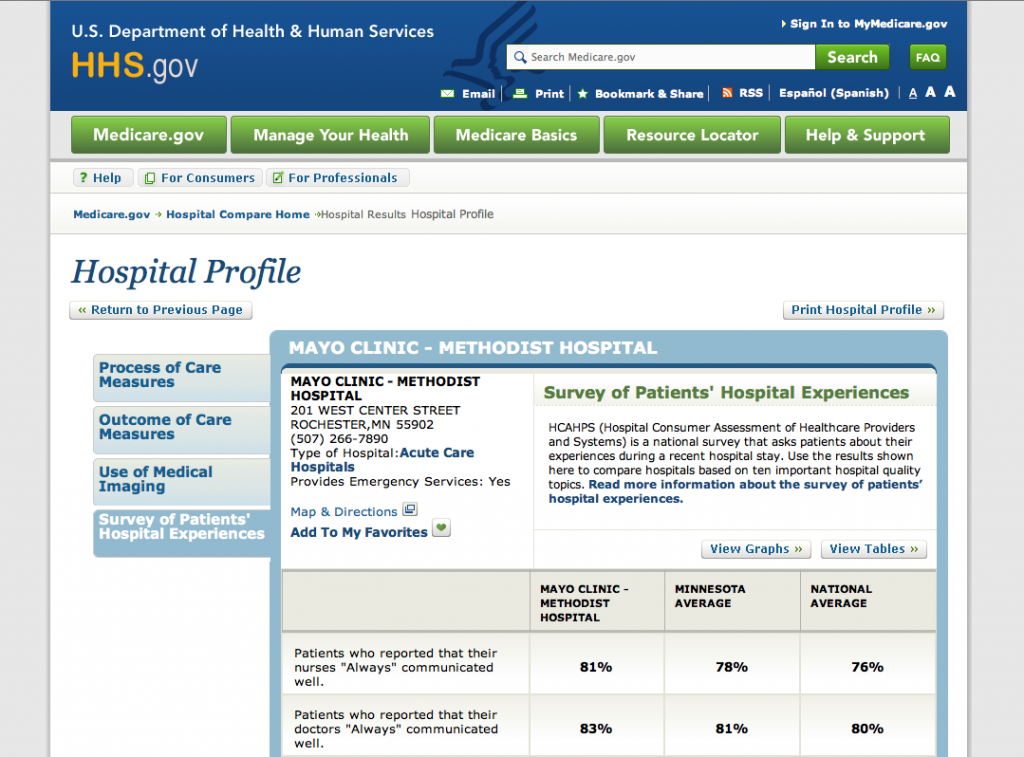the best medicine for hospitals might be communication
By Leslie Ziegler
Good communication has always influenced health care. And now, it’s a measurement that determines the quality of a hospital’s services.
The major arbiters of effectiveness and care in hospitals, historically, were quantitative things like mortality and readmission rates. But not anymore. The poorly-named but consumer-driven Hospital Consumer Assessment of Healthcare Providers and Systems, or HCAHPS, (really? who comes up with these names?) is a survey that compares them not just by numbers and outcomes, but how effectively they are satisfying patient needs and expectations. This qualitative criteria includes communication with doctors and nurses and their general responsiveness, in addition to things like cleanliness and noise levels. And it’s all provided by those receiving the care; patients. These reports are published on Hospital Compare, courtesy of Health & Human Services, and available to anyone with internet access and an interest in making an informed decision regarding where they receive care.
It turns out emphasizing strong communication from the top down lifts other operational areas as well. In this release by the Disney Institute, Scott Gordon of Arkansas Children’s Hospital recalls how making effective communication a priority transformed not only the patient experience and improved outcomes, but also made his team more focused and led to better staff retention and fundraising efforts. Calling it “a culture by design rather than default”, the thoughtful changes paid big dividends beyond patient satisfaction and landed the hospital in the Fortune 100 Best Companies to Work for the third year in a row.
If good communication can work wonders while patients are in the hospital, just imagine what it can after they check out. One of our start-ups here at Rock Health, Pipette, is building an application that functions as a conduit between doctors and their patients, to help monitor and educate them during the entire course of their care. With stats like “Patients who do not have a clear understanding of their after-hospital care instructions are 70% more likely to be readmitted or visit the emergency department than patients who do,” it’s obvious that something as simple as a daily mobile feedback mechanism has completely untapped and perhaps even greater potential to transform the patient experience.
While it could be argued that effective communication has the power to transform any industry, nowhere is it more important to get right than hospitals, where life and death can hinge on something as small as a single word, tone of voice or gesture. And now that it influences rankings and bottom lines, perhaps it will become an even greater priority.
